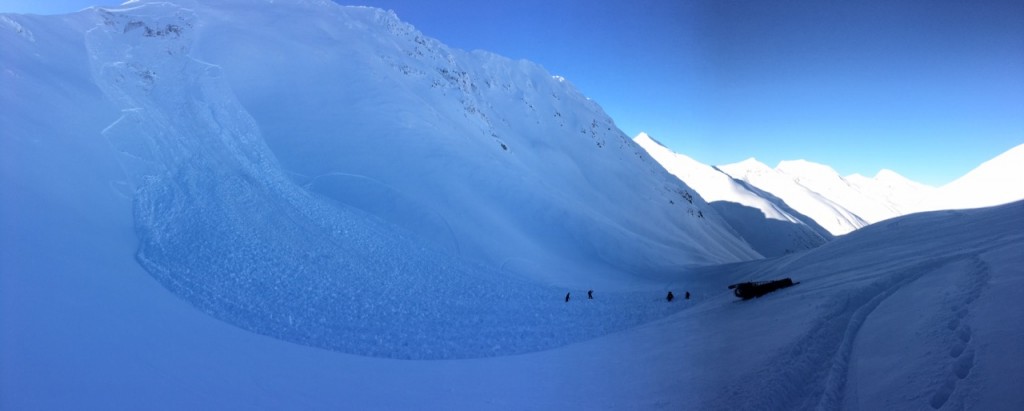Turnagain Pass
|
|
The avalanche danger is MODERATE in the advisory area including both Turnagain Pass and Girdwood Valley. Above 1000′ triggering a persistent slab avalanche 2-4+ feet deep is possible and consequences remain high should you find a trigger spot. Two large snowmachine triggered avalanches occured as recently as Friday and both folks involved were uninjured. Heat from the sun will also be something to monitor and could make wind slabs, cornices and loose snow avalanches more tender. Be sure to carry your rescue gear and practice safe travel protocol – such as exposing one person at a time, grouping up in safe zones, having escape routes planned and watching your partners!
Below 1000′ the danger is LOW, where temperatures are freezing overnight and a hard crust exists.
Summit Lake: An unstable snowpack exists in the Summit Lake area and human triggered avalanches breaking near the ground are possible. Make sure and check the Saturday Summit Summary HERE.
The Southern Kenai Mountains including Seward, Snug Harbor and Lost Lake continue to have an unstable snowpack.
Human triggered large avalanches, breaking near the ground, are possible. Please see link above for recent activity. Another 1-2′ of wet heavy snow fell Tuesday and Wednesday, adding more load to a snowpack with weak snow near the base. Keep in mind avalanches can be triggered remotely, from below or mid-slope. Careful snowpack evaluation and cautious route-finding is essential.
Hatcher Pass avalanche conditions: If you are considering heading this way – please check the recent observations for Hatcher Pass and the Saturday morning advisory!




